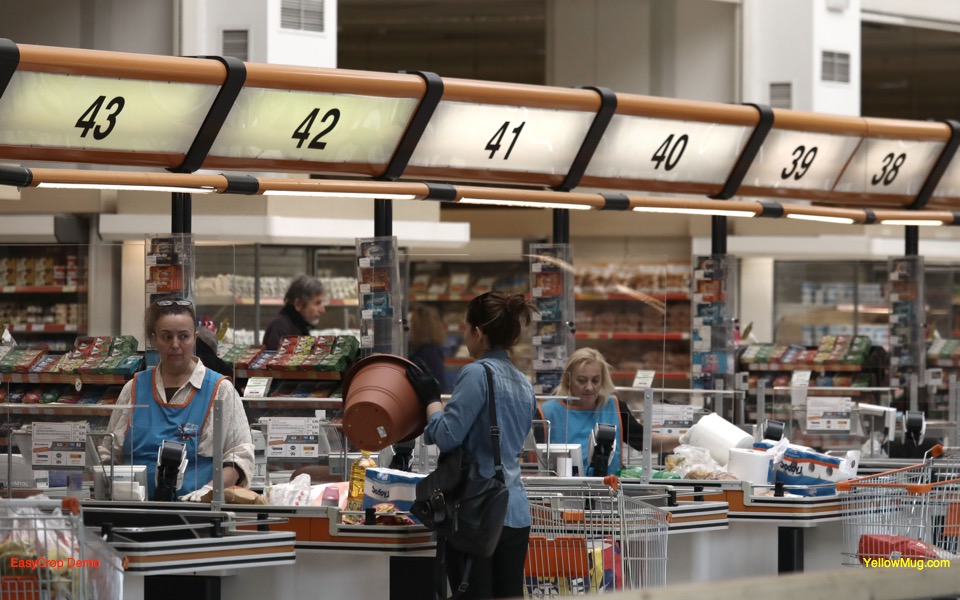Consumers paying more, shopping less

Households in Greece have paid about 320 million euros more in the first nine months of the year than they did in the same period last year but they bought fewer products (1.8% less) in total.
Inflation is forcing consumers to dig deeper into their pockets to cover basic needs, such as those for food and other essentials. This has effectively eroded any increase in disposable income.
Indicatively, it now appears that after two years of increased savings – as a result of the limited social activity brought about by the lockdowns and also because of the long duration of the recession – savings are now falling this year.
NielsenIQ statistics showed that supermarket sales climbed by 4.6% in the first nine months of 2022 compared to the same time in 2021. In absolute numbers, according to the data available to Kathimerini, this means a turnover of 7.278 billion euros (excluding the islands and Lidl), compared to a turnover of €6.958 billion in the same period in 2021.
However, €320 million more was spent at supermarkets, but not because more goods were purchased. The overall decline in product purchases is estimated by NielsenIQ at 1.8%.
According to the market research firm, several significant categories in the food sector, such as bread and pasta, owe their sales rise mostly to increases in their average selling price, which grew by 13% and 10.1%, respectively, while the average price of seed oils rose by 38.9%. The average price in the paper sector and all of its major categories also increased significantly, with kitchen rolls jumping by 15.6% and toilet paper by 12.7%.
In order to cope with the cost of essential items, consumers are cutting back on so-called impulse purchases and on products such as clothing, linen, cooking utensils and electrical appliances. This category, despite the revaluations, shows zero growth, which translates into a significant reduction in sales volume.
In addition, consumers seem to be drifting back to small shops again to avoid being lured into large purchases.
The picture prevailing in the supermarket sector is in fact confirmed by data from the Hellenic Statistical Authority (ELSTAT). According to that, final household consumption expenditure increased in the second quarter of 2022 by 20.1% compared to the corresponding quarter of 2021, from €31.4 billion to €37.7 billion.





